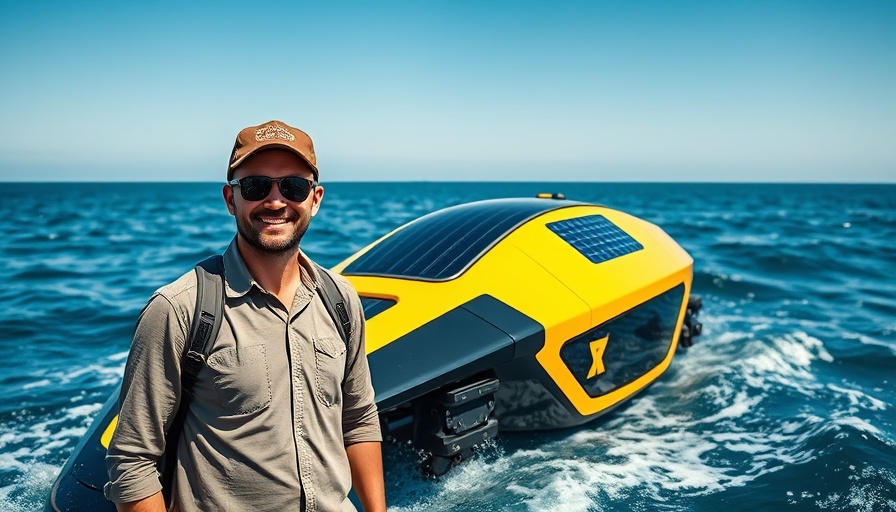
Unlocking the Future: A Global Network of Ocean Robots Endorsed by UNESCO
In a groundbreaking achievement for marine science, a coalition of uncrewed surface vehicles (USVs) known as the SUN Fleet has been globally endorsed by UNESCO. This endeavor, spearheaded by Dr. Ruth Patterson from Charles Darwin University, marks a significant step forward in marine technology and climate monitoring. Aimed at enhancing data collection for weather forecasting, wildlife surveying, and maritime security, this initiative reflects an innovative approach that combines scientific research with technological advancement.
The Birth of the SUN Fleet
In April, the proposal for the SUN Fleet was presented to the Global Ocean Observing System's (GOOS) Observations Coordination Group. This international collaboration unites multiple sectors, from academia to industry, bringing together experts dedicated to advancing marine observational capabilities. As Dr. Patterson noted, “This network is about science and industry collaborating to build a capacity and capability for broader humanity.” This collaborative ethos is vital in today's scientific landscape, especially as we face simultaneous challenges in climate change and environmental sustainability.
Why This Network is Crucial
Historically, USVs have been employed for oceanic observations, but a unified network like the SUN Fleet is unprecedented. Without a comprehensive framework for managing data collection across various platforms, much of the ocean remains under-sampled and data-poor. This network addresses this issue by ensuring that data is precise and coordinated. The implications are far-reaching, impacting sectors such as agriculture, fisheries, and shipping—each of which relies on accurate environmental data.
Harnessing Renewable Energy
A notable advantage of USVs is their reliance on renewable energy sources. These vehicles can traverse tens of thousands of kilometers unassisted, navigating conditions that are often dangerous for human crews. This capability reduces logistics costs and amplifies data collection in remote areas previously deemed too hazardous for traditional vessels.
The Path Forward: Governance and Standards
As the SUN Fleet sets sail into its next phase, Dr. Patterson emphasizes the importance of developing data standards and governance structures. Such infrastructure is essential for ensuring consistency and reliability in data collection. The establishment of the SUN Fleet project office at the University Corporation for Atmospheric Research in the USA marks the beginning of this governance effort, laying the groundwork for future successes.
Investing in an Ocean Future
Dr. Patterson urges investment in this network, framing it as a means to safeguard our future. “It’s in humanity’s best interests to be invested in this network and this technology,” she remarked. With increasing severity of weather events and funding cuts to scientific research, having access to precise and reliable data is paramount. Not only does this initiative aim to bolster our understanding of the ocean, but it will also invigorate the blue economy, supporting a sustainable future and technological innovation.
Conclusion: A Call to Action
The launch of the SUN Fleet represents more than just advancement in technology; it symbolizes humanity's commitment to tackling environmental challenges through innovation and collaboration. By supporting this initiative, stakeholders across all sectors can contribute to a sustainable future, ensuring that we have the tools necessary to navigate the uncertainties of climate change and protect our oceans.
 Add Row
Add Row  Add
Add 






Write A Comment